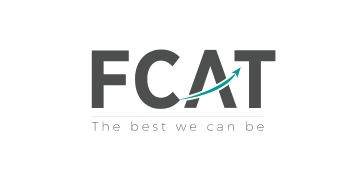Following the Conservatives’ election victory, no-notice inspections of schools are likely to be trialed in England. Colin Richards believes this lack of notice should apply to inspectors as well as schools.
In a recent blog, Ofsted’s national director for education admitted that under the recently-introduced framework, “schools with more pupils from deprived backgrounds are still less likely to be judged good than those from more affluent backgrounds…just as they were under the last framework”.
What if inspectors were not given prior notice of the schools they are to inspect until the day of the inspection?
In his recent opinion piece in Schools Week, Stephen Tierney puts it bluntly and with feeling: “The hard reality is those schools and staff working in the most disadvantaged areas are graded more harshly by Ofsted”.
As so many of Ofsted’s critics have stressed, this has been a long-established feature of the Ofsted regime ever since its inception in 1992 and remains the case partly because of the undue reliance on performance and progress data in forming inspectors’ judgments of schools’ overall effectiveness.
Admittedly with the new arrangements this is less overt and even perhaps a little less prevalent than in the past, but it is still a potent factor. This is revealed through close examination of the new-style inspection reports, including those of schools deemed ‘inadequate’ or ‘requiring improvement’.
In many of these, there are references to improvement or deterioration over time which can only reflect inspectors’ use of such data.
At the same time, under the new government, the introduction of no-notice inspections seems likely, despite the opposition of teachers’ professional associations and the distrust and alienation they would generate.
They would increase the pressure and strain on all schools, but especially those serving disadvantaged areas, which are already over-represented among schools deemed ‘inadequate”.
However, even if no-notice inspections are introduced, and I am not advocating that they should be except in exceptional cases, there is one way in which their negative effects could be reduced, especially in lower-performing, disadvantaged schools.
This would involve the notion of “no-notice” being applied to inspectors as well as to schools.
What if inspectors were not given prior notice of the schools they are to inspect until the day of the inspection, and were proscribed from viewing schools’ online documentation? This way, they would not be able to form premature data-based judgments before their visit.
What if, when visiting schools data-blind, they were to report on the quality of education they actually observe, including intent, implementation and impact, but without any reference to, or influence by, test outcomes?
Isn’t it possible, even probable, that many disadvantaged schools would fare better, and be treated more fairly, in the judgments made in such inspections?
What then, if Ofsted’s qualitative reports were published separately but alongside schools’ performance data and contextual information?
Wouldn’t there sometimes be major discrepancies which would bear self-examination both by schools and by Ofsted itself? Wouldn’t the limitations of different aspects of school evaluation be much clearer, and the complexities and difficulties of judging school effectiveness more evident?
Who would have most to gain, and most to lose, through no-notice inspections for inspectors as well as for schools?
I suspect that many schools serving disadvantaged areas would gain from receiving fairer recognition of the quality of their work. I suspect Ofsted would have most to lose, especially in terms of the misplaced confidence it currently enjoys among those unaware of its inevitable limitations.








The notion of inspectors being data blind is very interesting. To be data blind would require inspectors to have no prior knowledge of the school and to have never seen the performance tables. I would imagine most inspectors, devoid of data, would have an insight of the schools performance, gained from their memory of the performance tables, media reports, etc.
Perhaps to achieve “data blindness” requires inspectors to inspect schools that are totally unfamiliar to them, perhaps in another Ofsted region. To be told of the inspection just as they are being put on a mini bus to take them to a school at the other side of the country, after they have handed in all mobile phones and laptops etc.
Not sure that is all possible. Perhaps if the Performance Tables we’re not published to prevent inspection bias and only revealed to the team at the end of the inspection, after they have summed up in front of the Headteacher. This would then require a process to reconcile the difference between the data and non data informed observation/inspection.